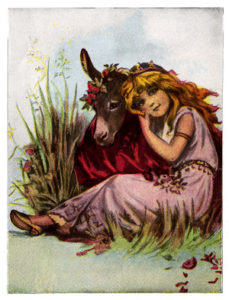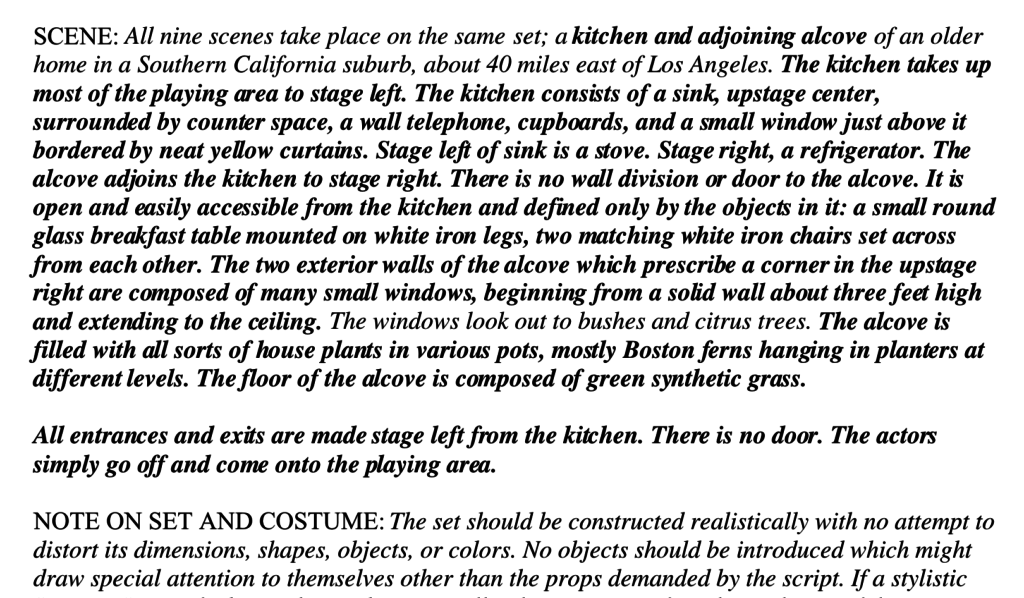Today I was asking random people about their thoughts on Shakespeare, and there was at least one expected answer of, “old and hard to read.” My normal reaction was to go with the “Well, you really need to see it to understand what’s going on, reading is great after you already understand the story and character and now want to get into the details…..” when something occurred to me that I don’t think I’ve ever considered before.
When it comes to making Shakespeare “easier to read” we always seem to go to “modern translation” at worst, or “easy to access glossary and crazy amounts of footnotes” at best. The latter might give the most amount of information to the reader, but it’s certainly hard to “read” anything when your eye is constantly jumping around the page.
When I need an example I often go back to one that Mr. Corey, my 12th grade English teacher, used when discussing Hamlet. There’s a moment when Polonius says, “take this from this, if this be so.” Which makes no sense unless you can see that he is pointing to his head and then his shoulders, in other words, “have me decapitated if I’m lying.”
In this particular case, there’s often (always?) a stage direction that says, “[Points to his head and shoulder]. So it’s not really the greatest example. But is that part of the problem? The incredible dearth of stage directions? For the most part all we get with Shakespeare is who entered, who exited, and who stabbed or killed whom. You’ve got to be careful, too, because those that are stabbed often stick around for a few speeches before they die.
Has anybody published an addition that doesn’t touch the actual text of the dialogue, but instead lays out the context in the stage directions? Modern stage directions, in my limited experience, seem much more detailed. For some reason True West by Sam Shepard is what came to mind, and here’s a snippet of those stage directions (I was unsure if the bolding was in the original, I took a screenshot of somebody’s analysis I found online):

There’s a fairly obvious argument against going down this path in that it destroys the infinite interpretation of Shakespeare that has made him so timeless. To say “Enter Hamlet, and here’s what he’s wearing, and here’s the expression on his face because here’s what he’s thinking…” is to destroy the character. Or at the very least, to lock one interpretation in stone. But surely there’s middle ground? How hard is it to write, “Enter HAMLET, still mourning his recently deceased father, dressed mostly in black.” Now you’ve got context for “clouds hang on you”, “inky cloak,” “nighted color”, and so on.
Maybe this is how Shakespeare is actually performed, I don’t know. Maybe the director, in trying to document her vision, does something similar where she has to go through and add notes of description to all the various scenes?



 horror story so I’m sure there’s not going to be much Shakespeare in it at all. The cast of characters doesn’t list any actual character names, excepting “Mike Puck” and “Nick Bottoms”. Everybody knows that I’m in it for the Shakespeare, so if I don’t hear some original text, I’m probably not going to care for it much at all.
horror story so I’m sure there’s not going to be much Shakespeare in it at all. The cast of characters doesn’t list any actual character names, excepting “Mike Puck” and “Nick Bottoms”. Everybody knows that I’m in it for the Shakespeare, so if I don’t hear some original text, I’m probably not going to care for it much at all.